Unless you've been living in a cave, you've probably heard of some or all of the above approaches to eating.
And if your holistic-health minded, you've probably tried (or have friends who have tried) one or more of these.
To be honest, I've seen people benefit greatly from each of these diets. And when that happens, it's awesome.
New paleo-ists scrapping refined sugars and balancing out their blood sugar levels.
People who incorporate more raw salads into their diets on their way to becoming raw foodists.
Very sick people who stop eating red meat and watch their cancer disappear.
The bone I want to pick with these approaches is that despite the many promises their proponents claim, and despite the success stories, there are still failures. Nothing is 100%.
I've seen paleo/raw/vegan diets fail enough times to want to say something about it. Because despite the success stories, supporting science, and so-called historical evidence around each of these diets, sometimes they fail miserably.
And when they fail, people are left confused, thinking it's them who failed, not the diet. When really, it's the other way around.
Dark side of the spoon
Think paleo-crossfit chicks who take the most extreme approach to paleo that cuts out all sugar, fruit, starchy vegetables and carbohydrates, who then burn out and distort their hormones. They can't fuel their two high intensity workouts per day, and their periods stop.
Think raw foodist yogis who shiver their way through a winter of blended raw vegetables and juices, and experience low energy, fatigue and a coldness that just won't shift.
Long term die-hard vegans who, although may have been living quite happily as vegans for some years, find themselves craving an egg or some fish when they fall pregnant or get ill - and fail to listen to their bodies.
Please be clear - I'm not saying these diets don't work at all. I'm saying that they don't work for 100% of the population, 100% of the time, contrary to what proponents of each of these approaches to eating will say on the websites and in the books they sell.
How to recognise a magic bullet diet
Enthusiasts of the diet/superfood/ingredient claim it cures everything - from chronic diseases, to skin conditions, and even psychological or stress-related disorders.
According to one top Paleo diet website, “eating like this is ideal for maintaining a healthy metabolism and reducing inflammation within the body. It’s good for body composition, energy levels, sleep quality, mental attitude and quality of life. It helps eliminate sugar cravings and re-establishes a healthy relationship with food. It also works to minimise your risk for a whole host of lifestyle diseases and conditions, like diabetes, heart attack, stroke and autoimmune.” That’s quite an extensive list!
2. "There's scientific evidence"
There is often scientific evidence to back up these diets. Some of it is super solid, and some of it is anything but. Many paleo studies are extremely short term, and there are very few studies done on the benefits of a 100% raw food diet.
The funny thing about scientific evidence is that if you look hard enough, you can find evidence for whichever argument you decide to take, whether it's paleo or the exact opposite – a high carbohydrate, low to no animal protein, plant-based vegan approach.
The work of Colin Campbell and Cardwell Esselstyn exemplifies the many benefits of such a diet. And their studies are probably the most comprehensive and scientifically valid of the lot. It still doesn't make them perfect and fail-proof, however. I've seen people on a vegan diet suffer, the same way I've seen paleo people and raw foodists suffer. Not everyone does well on a 100% vegan diet, the same way not everyone suits a high animal protein diet.
3. "It's how we were meant to eat."
The flyer at a paleo cafe I enjoy attending says the paleo diet "avoids dairy, grains, legumes, added sugars and preservatives, which our bodies were not designed to digest.”
Really? What about the traditional cultures who adapted to digesting lactose and have lived for centuries eating cultured raw milk products, like the Abkhasians of Russia? Or the myriad traditional cultures who eat legumes and grains on a daily basis - Indians with rice and dahl, or native central americans with maize and beans? You could hardly argue that these guys are unhealthy.
The same applies with hard core raw foodists and vegans. "We weren't meant to eat cooked food." "We don't have the correct length digestive tract or teeth to digest meat." While it's easy to find some form of evidence for some of these statements, they are still sweeping statements - they simply don't work for EVERYone.
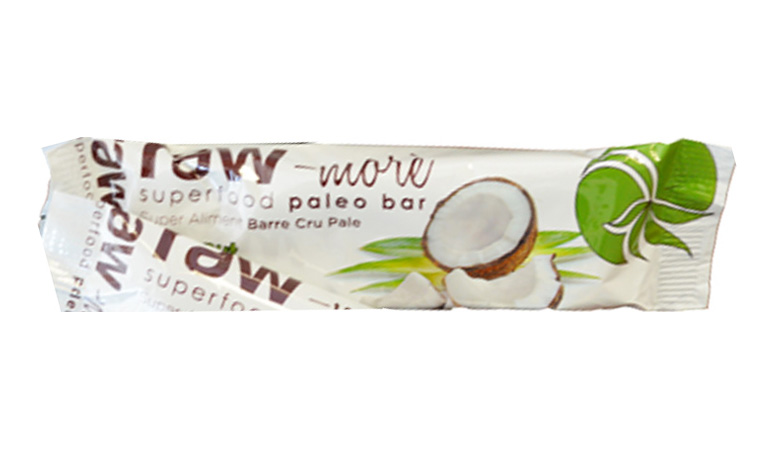
5 ways to avoid "magic bullet" disappointment
1. Clarify your motives.
Why do you want to go vegan/raw/paleo? Is it to lose weight/fit into your old jeans/get clear skin? If so, look a little deeper. WHY do you want to lose weight/have better skin? The deeper reason for embarking upon any health endeavour is often to feel more confident, to feel more satisfied, to have a more rich and meaningful life. But feeling good is not only dependent on diet.
You need to look at all aspects of your life in order to feel good - and that includes your emotional landscape, exercise and other habits, attitudes, values, beliefs. It involves assessing your job satisfaction, family dynamics, relationships, and lifestyle.
Want to be wholistic? Then look at the whole picture. Diet is important, but it's only one piece of a much larger whole.
2. Practice intuitive eating.
It's ok if you eat a salad, ditch refined sugars, or eat a vegan meal - as long as it's truly what you feel like.
The only reliable authority, in the end, is your own body. We need to learn how to trust our bodies again, and how to listen to the messages it is sending us about diet. The simple tools of tuning into our bodies and fully experiencing each bite of food have the power to resolve most questions about food choices and diet.
Rather than adopt a diet, you could try a more intuitive way of eating that is highly personalised to your needs, food preferences, lifestyle, and experiences.
A truly instinctive approach to nutrition aligns joyful, nurturing eating with the authentic needs of body and soul. It doesn't include eating raw salads in winter when you are dying for a hot pumpkin soup.
3. Take the best from the diet, and make it your own.
The paleo and raw movements get a big tick for their push towards real foods. Veganism gets a tick for the emphasis on plant-based foods, which most people need more of. We would be better off eating real foods. That means foods that we grow, hunt or pick. Foods that are unmodified and come from nature.
When possible, we should aim for the most nutrient dense foods, because that’s why we eat, to nourish! Not to accomplish some idealised macronutrient ratio. Take the good from these diets, then break the other rules. Don't become a slave to rules and extremism. That brings me to the next point...
4. Avoid extremism
As much as we collectively rant about the benefits of moderation, people will always tend to be extremist when approaching a topic as complex and transitional as nutrition, in an attempt to simplify and make sense of it all.
Unfortunately that desire for "the be all answer" contributes to the hype around "magic bullet" foods or diets. You don't have to go 100% paleo, raw or vegan in order to gain more energy, and be healthier. You may only need to add a few more vegetables to your diet, or reduce your intake of refined sugars and processed foods. People have a hard time grasping moderation as the key, but moderation really is golden.
5. Ditch the labels
Some days I'm "vegan." In Summer in Thailand, I went three months on a raw vegan diet, without even noticing it. In winter in Australia, I eat eggs and the occasional fish. I may have a paleo lunch and on the same day have a non-paleo dinner with roast potatoes and ancient grains. These ways of eating can work when they are slotted in to fit your lifestyle, your day, your mood, your climate, your genetic heritage, and your season.
When these seemingly healthy diets fail is when we try to fit ourselves to the diet, with its theoretical rules and blanket recommendations.
Don't be a raw foodist for the sake of being able to say "I'm 100% raw." That's not very flexible and unless you live in a treehouse in Thailand all Summer running up mountains and practising yoga for 6 hours a day (as I once did), it probably won't work perfectly in the long term.
Ditch the labels and do what works for you. And that may change on a seasonal, daily or hourly basis.
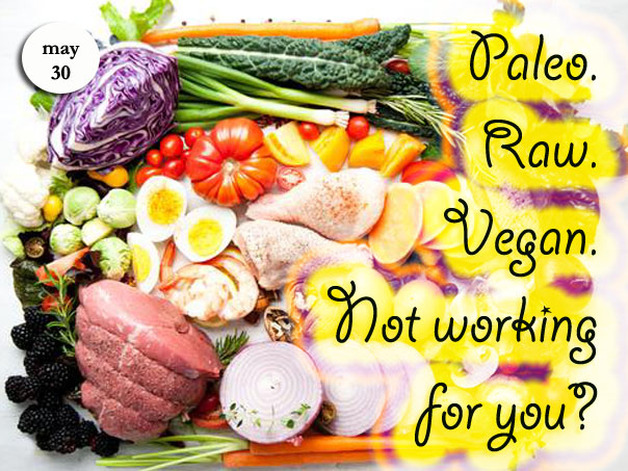
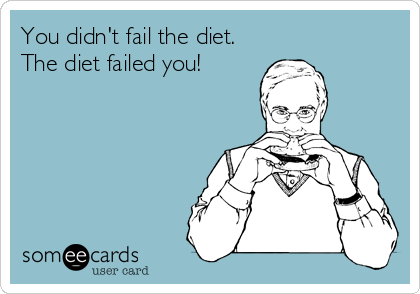

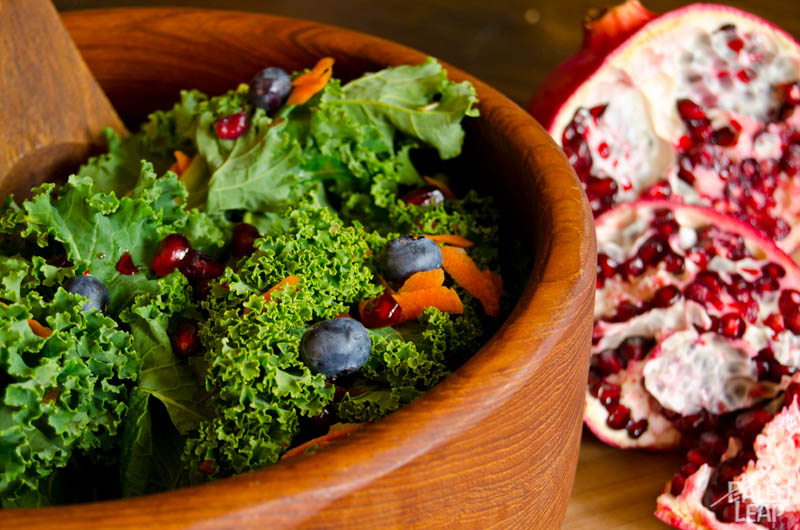
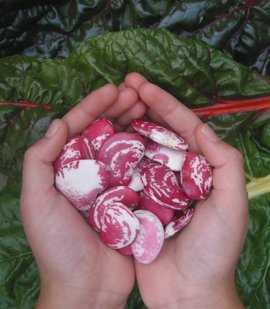
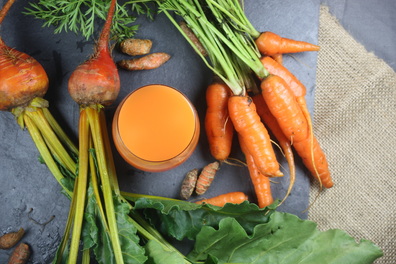






































 RSS Feed
RSS Feed



